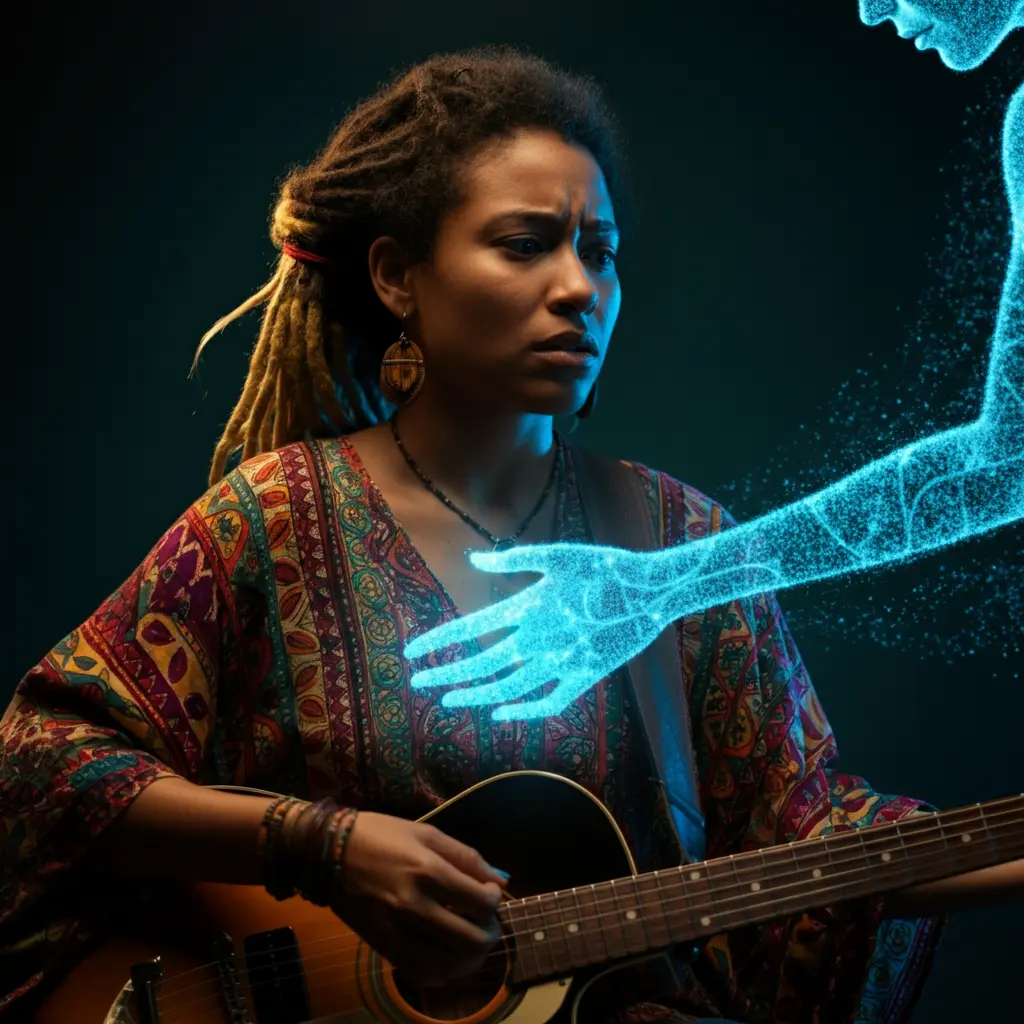As AI-driven music production gains traction, the line between human-made and machine-generated sound is blurring. Today, producers and musicians routinely integrate advanced, musician-friendly AI tools—such as AI-powered composition assistants, intelligent mixing plugins, and algorithmic mastering software—into their creative workflows. Much like the shift from analogue tape to digital DAWs, AI isn’t here to replace human artistry; it’s here to enhance it.
A Future of AI-Driven Music Creation
Imagine a future where AI and humans collaborate seamlessly. Instead of thinking in terms of “authentic” human-made music versus “synthetic” AI-produced tracks, we can approach them as complementary forces. Already, AI-driven music production tools assist with everything from generating complex chord progressions to crafting unique samples and textures—tasks that once required hours of tedious labour. This evolution mirrors the integration of sequencers and samplers decades ago. Now, these AI tools can help creators focus on what truly matters: producing innovative, emotion-driven work.
Decoupling Work from Income: Beyond Scarcity
Shifting our perspective on music leads us to re-examine our economic models. Why must our financial survival depend on work—especially if machines and AI can handle tasks we find mundane or unfulfilling? Concepts like Universal Basic Income, decentralised ownership, and contribution economies envision a world without scarcity. In such a scenario, AI and robotics enable abundance, making wealth creation less about endless hustle and more about meaningful engagement with our passions.
Embracing Abundance in Creative Economies
If AI-driven music production, future-of-music creation platforms, and decentralised financial models become standard, we could finally separate income from labour. Freed from the constraints of working purely for financial gain, musicians and producers might pursue projects solely for growth, self-expression, and community building. This shift could encourage people to experiment with new genres, mentor aspiring artists, or collaborate in entirely new ways, all without worrying about paying the bills.
As we stand on the cusp of this AI-driven transformation in the music industry, it’s time to ask ourselves:
What role should AI play in our creative processes?
Should we fully embrace these musician-friendly AI tools, or set boundaries to preserve a sense of human authenticity?
Should we be fighting against AI, or against the financial system we live in?
ChatGPT Notes:
In this collaborative endeavour, Manolo provided initial text and strategic guidance on AI, music, and economic models, while I (ChatGPT) offered iterative improvements.
Manolo requested honest feedback, SEO enhancements, and structural changes, which I incorporated.
We refined headings, integrated relevant keywords, added subheadings. Ultimately, we produced a more engaging, reader-friendly piece.
Manolo plans to generate related images using Gemini, ensuring a visually appealing blog post that aligns with his vision. This improved narrative fosters deeper engagement.
